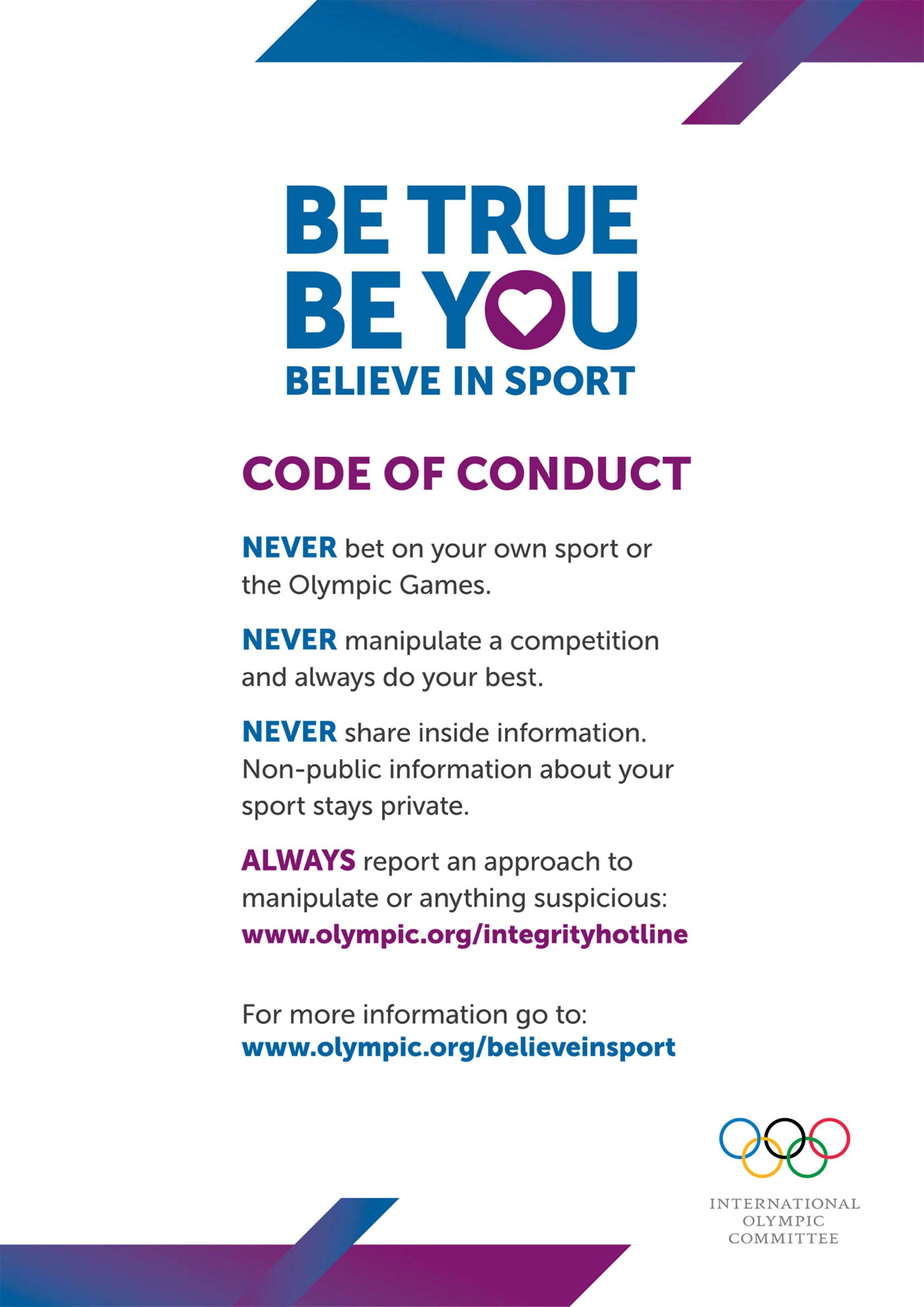Keeping competitions free of manipulation at PyeongChang 2018
With the Olympic Winter Games officially underway, and competitions in full swing, sound measures are in place at PyeongChang 2018 to both prevent and deal swiftly with competition manipulation. Protecting the integrity of sport and competitions is a top priority for the International Olympic Committee (IOC).
During the Games, an athlete or official cannot bet on any competition being staged in PyeongChang. Measures in place to tackle competition manipulation include a fully operational Joint Integrity Intelligence Unit (JIIU) in collaboration with experts from the PyeongChang 2018 Organising Committee (POCOG), and a sophisticated Integrity Betting Intelligence System (IBIS).
Pâquerette Girard Zappelli, IOC Chief Ethics and Compliance Officer, said: “Throughout the last few months, we have been working closely with POCOG, international police forces and national authorities to set up the necessary processes and coordinate actions for Games time. As a sports organisation, the IOC can deal with disciplinary matters related to the Olympic Games. At the Games, we have in place a dedicated Disciplinary Commission for cases of competition manipulation and other integrity breaches. We then rely on the Korean authorities and their jurisdiction for criminal and security matters.”
She added: “We have also for the first time put in place ahead of PyeongChang 2018 a prevention and awareness-raising programme to inform athletes and officials of the rules, which, thanks to the very good collaboration with all Winter International Federations (IFs) is proving effective.”
The JIIU is responsible for the prevention, monitoring and assessment of any unethical activity related to the Games, and is supported by national authorities as well as INTERPOL when needed, such as in the event of a criminal act.
The IOC’s Integrity Betting Intelligence System - a mechanism for the exchange of information and intelligence related to sports betting - is a tool to protect Olympic events from competition manipulation. During the Games, this system operates 24/7. Betting operators and regulators that have signed agreements with the IOC are responsible for monitoring betting activity and alerting the IOC directly when suspicious activity is detected. These include the ESSA (Sport Betting Integrity), which represents many of the world’s biggest regulated sports betting operators, the Global Lottery Monitoring System (GLMS) and other main stakeholders connected to sports betting. All the Olympic Winter International Federations have signed up to IBIS.
Furthermore, the JIIU can rely on the INTERPOL Major Event Support Team (IMEST), which is deployed to assist member countries in the preparation, coordination and implementation of security arrangements for major events, as well as the INTERPOL Match-Fixing Task Force. Since signing a Memorandum of Understanding with INTERPOL in January 2014, the IOC has been able to widen the scope of joint activities to include close collaboration during the Olympic Games.
Raising awareness about competition manipulation
Prevention plays a key role in the fight against competition manipulation. A number of measures have thus been implemented, including robust educational awareness programmes which kicked off last year and will keep running at Games time.
The IOC’s integrity eLearning programme has already been completed by several hundred athletes who will compete in PyeongChang. Featuring real-life scenarios, it teaches them the role they can play in protecting themselves and in preserving the integrity of their sport and competitions. The eLearning programme is available to athletes in 11 languages – either in the Olympic Villages’ Athlete365 Space, on their Samsung mobile phone or online by registering on Athlete365.
In addition, the IOC met with all Olympic Winter International Federations ahead of the Games to discuss sport- and discipline-specific risks and make available the IOC’s new BelieveInSport Campaign, aimed at raising awareness on the topic of competition manipulation among athletes, their entourage, officials and the public. Through different learning tools, BelieveInSport seeks to provide everyone involved with the sufficient knowledge and skills to counter competition manipulation. At the heart of the campaign is the BelieveInSport Code of Conduct, which sums up the rules that all athletes, coaches and officials need to be aware of.

Coordinated approach and harmonised regulations
This is the first Games edition where all the measures outlined above are overseen by the dedicated Olympic Movement Unit on the Prevention of the Manipulation of Competitions, set up by the IOC in 2017 and an integral part of the IOC Ethics and Compliance Office. This Unit oversees the implementation of the Olympic Movement Code on the Prevention of the Manipulation of Competitions, which forms part of the Olympic Charter and aims to provide sports organisations with harmonised regulations to protect all competitions from the risk of manipulation. The rules contained within were specified for the Olympic Games in PyeongChang.
Visit www.olympic.org/integrity to learn more about the various IOC integrity initiatives